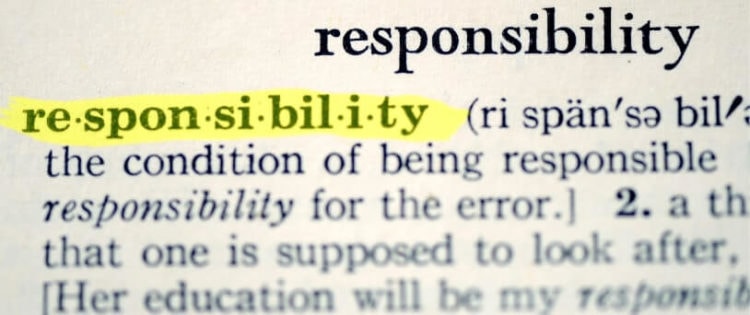
All the best real money casinos implement principles of Responsible Gambling.
Responsible gambling is based on a set of principles that are designed to promote personal and social responsibility when gambling. The three key principles of responsible gambling are to keep gambling safe, fair, and fun. To keep gambling safe, gamblers should only gamble with money they can afford to lose, set limits on how much they’re willing to lose, and never chase their losses. To keep gambling fair, gamblers should only gamble at reputable venues that follow the rules of the game, and they should never take advantage of other players. To keep gambling fun, gamblers should remember that it’s just a game and not a way to make money. By following these principles, gamblers can ensure that their experience is enjoyable and safe.
Casino operators have a responsibility to ensure that their patrons are gambling responsibly. There are a number of steps that casinos can take to promote responsible gambling behavior.
- First, casinos should make sure that their employees are trained to recognize the signs of problematic gambling behavior. They should also have clear policies in place for addressing such behavior.
- Second, casinos should provide customers with information about responsible gambling practices. This might include posting signs about risks associated with gambling, providing brochures with helpful resources, or offering educational programs on responsible gambling.
- Third, casinos should set limits on how much money patrons can spend and how long they can gamble. These limits can help to prevent problem gamblers from getting in over their heads.
- Finally, casinos should offer self-exclusion programs for patrons who want to take a break from gambling.
Overall, casinos have a responsibility to ensure that their patrons are gambling responsibly. By taking a few simple steps, they can help to create a safe and enjoyable environment for all.

Requirements for responsible gambling
States may have various requirements for responsible gambling programs. For example, they may require casinos to post signs warning of the dangers of problem gambling and provide information on where problem gamblers can seek help. Additionally, they may require operators to verify that those who win money from gambling activities do not owe child support. These policies may vary from state to state, but they are all designed to protect vulnerable gamblers. State requirements for responsible gambling may be specific to the industry in which the gambling takes place.
Maryland recently authorized the expansion of gambling opportunities. Its gambling laws reference the Problem Gambling Fund administered by the state’s Department of Health, which can be used for outreach programs, 24-hour phone support, and problem gambling treatment. Responsible gambling is essential for the safety of both the gambler and their family members. Maryland casinos have resources to help responsible gamblers and help prevent problem gambling. While it may seem like a daunting task, these laws will help all those involved stay in control and enjoy the game.
Positiveplay scale
If you’ve ever played at a casino online, you’ve probably heard about the Positive Play Scale, the Codes of Conduct, and the 800-GAMBLER hotline. These organizations provide resources to help players become more responsible. These programs may also include your State’s requirements for responsible gaming.
The modern gambling industry has taken on a duty of care to limit the harms associated with its products. In order to do this, they have instituted responsible gambling programming. This includes public education and treatment programs. A new PPS was recently developed to measure players’ beliefs and behaviors related to RG. The researchers validated it by consulting 30 players and 10 RG experts. In addition, the scale was tested among 1551 regular players at a Canadian provincial gambling operator.
The PPS is an evaluation tool designed to measure whether a responsible gambling policy has improved the lives of the gambling population. It measures the absence of problem gambling behaviors and erroneous beliefs. Recent research shows that positive play encompasses more than just the absence of problematic behaviors. It has also been found that frequency of play is not a strong predictor of positive play. In addition, the PPS is highly sensitive to gambling-related problems.
Codes of conduct for responsible gaming
Responsible Gambling Codes of Conduct describe commitments by venues to minimize the harm caused by gambling and assist problematic gamblers. These Codes are based on the principle that gambling is a social activity that should be enjoyed responsibly and with the goal of preventing problems. They triangulate data from interviews and focus groups with 40 gamblers, aspirational statements from operators of EGMs and structured unannounced observations of 11 EGM venues.
Various regulators, trade associations and non-profit organizations have developed code of conduct. These codes of conduct are based on multiple legal frameworks. However, each code should have its own unique content and reflect the school’s vision, values, and mission. For example, an advertising code must state the principles of responsible gaming and cite standards of good taste that are generally accepted within the industry. Furthermore, the Codes of conduct of member companies must include a message about responsible gaming.
GAMBLER hotline
Calls to the Responsible Gambling Hotline 1-800-GAMBLER are overwhelmingly anonymous. Typically, problem gamblers decline to give their name, preferring to tell their personal story instead. Gambling is often a difficult addiction for others to understand, and problem gamblers don’t smell sports betting on their breath or pass out after a gambling binge. Many also feel as though their lives are a secret to everyone else
- Comprehensive Guide to the Board Game Go (weiqi, baduk) - January 23, 2024
- Are Creative Suites Changing Gaming - October 30, 2023
- How Classic Games Have Been Reimagined for Modern Audiences - October 5, 2023